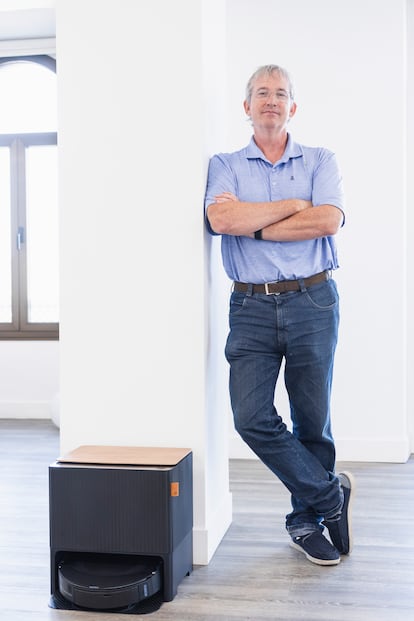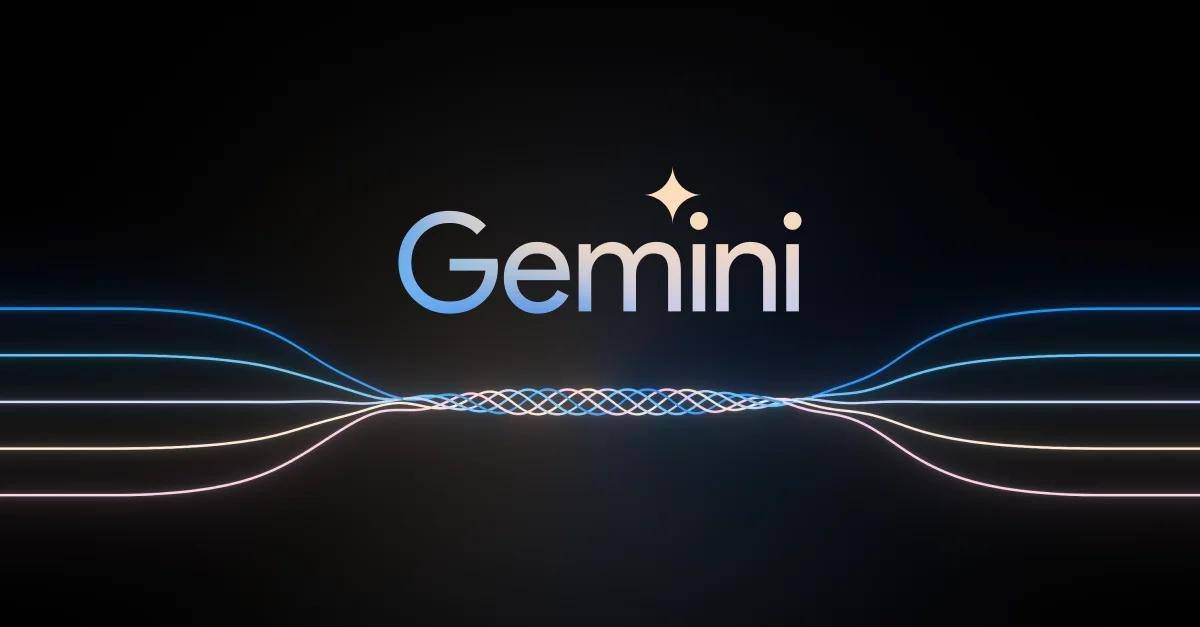“I’ve only had one job in my entire life: this one. We had been promised robots in books and movies, but I didn’t see any. I founded iRobot after graduating from MIT with the goal of advancing the robotics industry.” He has succeeded, at least to some extent. Colin Angle (Concord, USA, 56 years old) has been manufacturing robots of all kinds for more than 30 years. His first steps were taken by the Department of Defense, to whom he has sold thousands of robots with caterpillar wheels to deactivate anti-personnel mines. His are the reconnaissance robots that toured the ruins of the Twin Towers after the attacks in search of survivors.
But its great success came from the Roomba robot vacuum cleaners. Already almost a pop icon, they inaugurated the domestic robotics market, which according to this engineer will be “huge” in a few years. “The original Roomba algorithm is the same one used by the robots we made for the Pentagon, but with a built-in vacuum cleaner,” says Angle, sitting on a sofa with his feet crossed and in a slow tone.
iRobot devices have several sensors and powerful software that allow them to move with reasonable precision. They vacuum and mop autonomously quite efficiently. They are able to know if we are at home or not (by searching for our devices via Bluetooth) to activate when they are not disturbing. Its technology has not gone unnoticed among the giants in the sector. Amazon announced in August last year its intention to acquire the company. The operation must still be approved by the US regulator, which is studying whether it violates antitrust laws. The European Commission opened its own investigation into the matter this summer. “We believe that Amazon is focused on a very long-term vision and that this can give iRobot the opportunity to innovate faster than until now,” he says. Angle attends EL PAÍS in Madrid during his European tour to present the latest Roomba models.
Ask. What is new about the latest models compared to the previous ones?
Answer. We now have the best robot vacuum cleaner on the market, the J9+, and the best robot vacuum cleaner and mop, the J9+ Combo. We have made the robot capable of cleaning for 60 days without having to touch it. Also in the case of the robot mop: while before the water had to be changed after each expedition, now this maintenance is done automatically at the emptying, refilling and loading station. The vacuum is now more powerful, and we have a system we call Dirt Detective that allows each room to be cleaned the way you want.
Q.What is it referring to?
R.We have incorporated software that draws a map of the house and the different rooms, and on it you can see what is in each room, how dirty it is historically and other considerations that lead you to learn what happens in every corner of the home. For example, that the dining room should be cleaned more than the hallway and always after meals, or that it is better to clean the bathroom after the kitchen, and not the other way around. Establish specific cleaning plans based on the type of floor and accumulated dirt and predict priority areas.
Q.How do you imagine robotic cleaning in ten years?
R.The intelligence that makes this robot great can be applied to more things. Why can’t we make other devices in the home understand where they are and what we need? For example, air purifiers are often set to low power because they make a lot of noise, when they are not effective. Why can’t the device know when it’s a good time to run loud without disturbing?
Q.Is your idea to integrate Roomba robots with more home appliances?
R.The concept of a smart home is very confusing today. There are some good ideas, but there is a lack of intelligence. I think we have to think more about the home as a robot, as a system. And, in 10 years, iRobot will surely want to do more than vacuum and mop the floor.

Q.Amazon has smart home devices like its Echo voice assistant, Ring doorbells and cameras, or the Astro robot. Would they fit into that plan?
R.Amazon has a great catalog and we have a good product and good technology. He is very interested in fascinating his clients. They design products for many parts of the home. Our visions are aligned, yes.
Q.Will we end up talking to the vacuum cleaner?
R.Of course. It’s not something we’re working on, but Google, Apple and Amazon are developing conversational models for their smart speakers. Right now it is difficult to guide a Roomba by voice, because you have to give the orders [a Alexa u otros asistentes] with a very specific syntax, and that can be frustrating. But if we are able to develop a conversational interface where I can say ‘Hey, Roomba, can you go clean the kitchen when I’m done eating,’ and Roomba tells me okay, then everything will flow. We will open a door to a new style of interaction with technology.
We know that there is a rectangular object called a kitchen in your house, but an online sales portal knows the last 78 things you have bought
Q.The information that Roombas robots collect from homes is very sensitive. How do you protect that data? Are these vacuum cleaners safe?
R.The information collected by the robots does not leave the devices, so the images and plans of the home remain in the vacuum cleaner unless the user says otherwise. The data transmitted to the user’s phone is end-to-end encrypted, so it is not susceptible to theft. The next level of security is that the data we maintain is stored in a way that is only useful to the robot. That is, if you managed to defeat all our cybersecurity measures and got hold of the plans of a house, you would be disappointed by what you would see: a series of polygonal shapes labeled as kitchen or bedroom, because the robot doesn’t care about any other information. We don’t store people’s private information because it is sensitive and we don’t need it to function. I would like customers to make their purchasing decisions based on the privacy that products offer.
Q.iRobot has access to intimate information about homes: their physical layout. The rest of the technology companies do not have that data.
R.We know that there is a rectangular object called a kitchen in your house, but an online sales portal knows the last 78 things you have bought and can make richer inferences than we can about your behavior. I’m not sure we can add much to those predictions with what we know. And I don’t want to do it either. Our commitment to privacy runs deep. We will never sell customer data, we will make money another way. My long-term vision is to help seniors live more independently. I don’t want us to be a data vacuum. I’m not interested in that data, in fact. I want you to never buy another cleaning robot if you buy a Roomba.
I don’t want Roombas to be data vacuums.
Q.When Amazon announced its intention to acquire iRobot, however, many thought it was after their data.
R.I know. I think Amazon, like the rest of retailers, has much better ways of getting information from users than through our robots. We do not provide them with any tools that improve what they already have in this regard. I don’t think they want to buy iRobot because of the data we have, because it is irrelevant.
Q.Despite the security measures you have described, last year private images of Roomba users taken by their vacuum cleaners circulated on social media.
R.They did not come from consumer robots. That couldn’t have happened with a commercial Roomba. The images belonged to users who were testing models in development and who had signed and consented to iRobot recording and collecting images. They were leaked by workers from an external company [Scale AI] which is dedicated to image annotation for models of machine learning [etiquetar imágenes manualmente para que la máquina asocie una serie de píxeles a una idea]. It was unfortunate, but it wasn’t a consumer issue, but rather a development issue. The company is now facing legal problems. We will make sure it can never happen again.
Q.Do you still work with image annotation companies?
R.We continue to do a lot of computer vision work. We have added new safeguards for image annotation efforts. We are turning to automated tools for annotation, which gives us more control over the process, so we don’t have to deal with third parties like before.
You can followEL PAÍS Technology in Facebook andTwitter or sign up here to receive ourweekly newsletter.
Subscribe to continue reading
Read without limits







